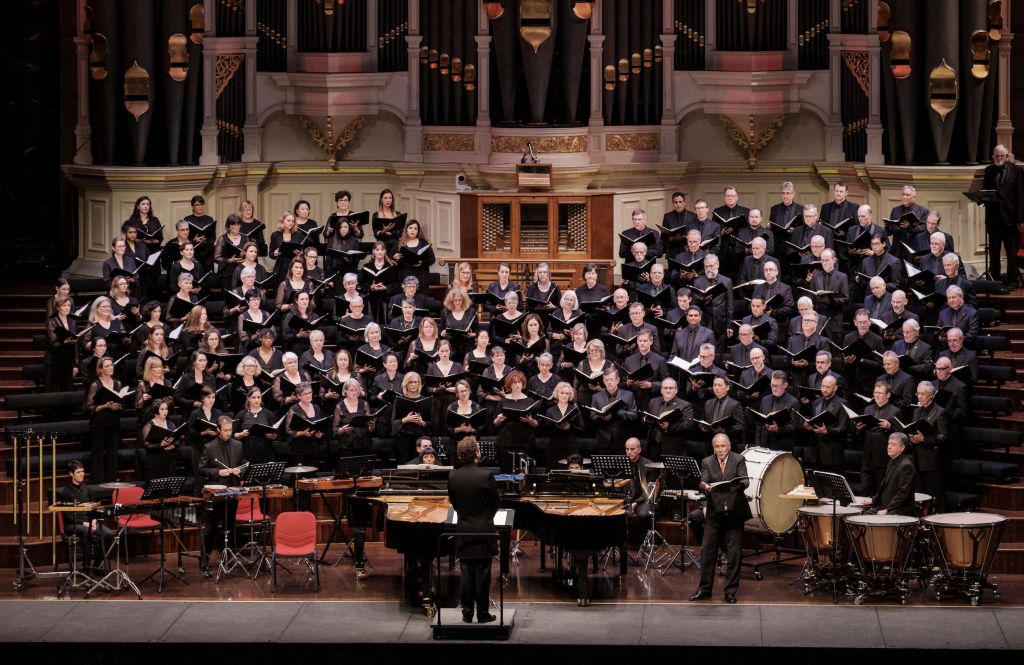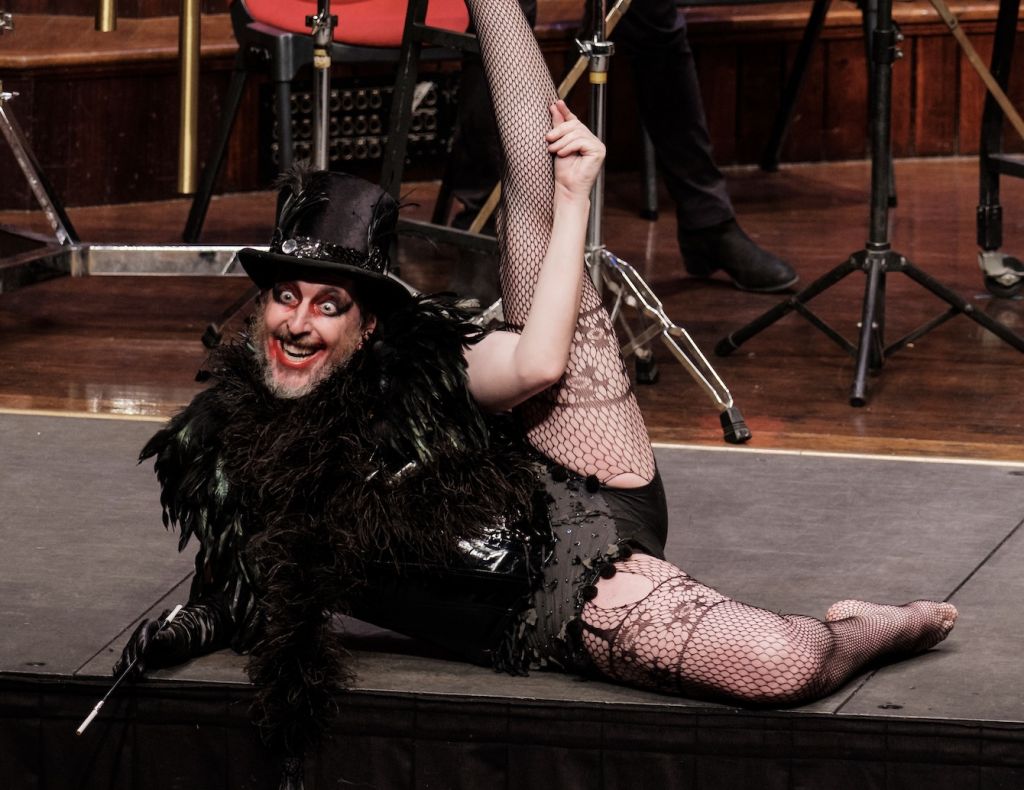A second-hand book catalogue referring to a 13th-century Austrian manuscript of songs and poems changed the largely self-taught composer Carl Orff’s fortunes and gave us one of our best-loved choral works.
 Sydney Philharmonia Choirs, Carmina Burana. Photo © Robert Catto
Sydney Philharmonia Choirs, Carmina Burana. Photo © Robert Catto
Carmina Burana, his cantata based on 24 poems from the medieval collection of secular songs in Latin and German, like all great works, seems fresh off the page when you hear it today. Written in 1930s Nazi Germany and influenced by Baroque composers as well as Igor Stravinsky, Orff’s tales of fortune, lust, greed and earthy spirituality delight audiences with their adventurous use of the voice and vibrant rhythms and harmonies.
This performance by Sydney Philharmonia Choirs, with NSW Public Schools Junior Singers, under the baton of Brett Weymark, was no exception, bringing the packed Sydney Town Hall audience to its feet. Using the non-orchestral version for two pianos and percussion, and with three excellent soloists in baritone José Carbó, soprano Penelope Mills and tenor Kanen Breen, a late substitute for Andrew Goodwin, Weymark kept a firm hand on the tiller, guiding his 160-strong forces through the reefs and shoals.












Comments
Log in to join the conversation.